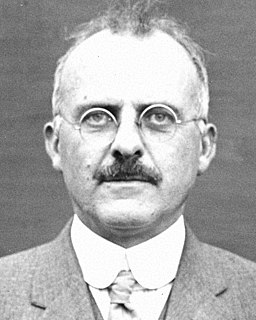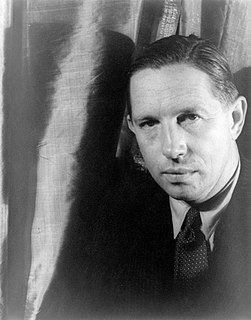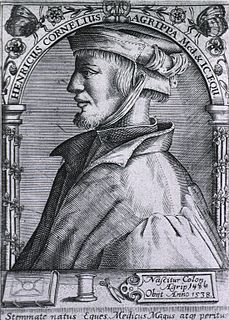A Quote by David Hume
What peculiar privilege has this little agitation of the brain which we call thought, that we must thus make it the model of the whole universe? Our partiality in our own favour does indeed present it on all occasions; but sound philosophy ought carefully to guard against so natural an illusion.
Related Quotes
We need to transcend our thoughts and desires to truly understand philosophy and the universe as a whole. However, in our everyday life, we deal with the micro universe and with our own affairs. Therefore we need to use our brain. To practice Tao is not to rid yourself of all thoughts. There are actually more occasions when you would use your true intention instead of non-desire.
If we could sufficiently understand the order of the universe, we should find that it exceeds all the desires of the wisest men, and that it is impossible to make it better than it is, not only as a whole and in general but also for ourselves in particular, if we are attached, as we ought to be, to the Author of all, not only as to the architect and efficient cause of our being, but as to our master and to the final cause, which ought to be the whole aim of our will, and which can alone make our happiness.
It is certainly a wonderful, a brain-staggering conception... that our own stellar universe may be but one of hundreds of thousands of similar universes... Familiarity with these mighty concepts most certainly does not breed contempt, does not dull our awe at the mightiness of the universe in which we play so small a part. It is very doubtful if any of those who are seriously studying the heavens ever lose their feeling of reverence for this supremely wonderful universe and for Whoever or Whatever must be behind it all.
If men lived like men indeed, their houses would be temples -- temples which we should hardly dare to injure, and in which it would make us holy to be permitted to live; and there must be a strange dissolution of natural affection, a strange unthankfulness for all that homes have given and parents taught, a strange consciousness that we have been unfaithful to our fathers honor, or that our own lives are not such as would make our dwellings sacred to our children, when each man would fain build to himself, and build for the little revolution of his own life only.
Whether we fail or not, we shall not be kept from continuing our mission by those who claim it can't be done. ...Indeed the whole of agricultural and livestock science and even human medicine, if sound, is merely the business of discovering certain natural patterns already in existence, putting together the various pieces and discovering their relationship to the whole universe; indeed such a process is science itself
Philosophy can add to our happiness in no other manner but by diminishing our misery; it should not pretend to increase our present stock, but make us economists of what we are possessed of. Happy were we all born philosophers; all born with a talent of thus dissipating our own cares by spreading them upon all mankind.
Natural Magick is taken to be nothing else, but the chief power of all the natural Sciences; which therefore they call the top and perfection of Natural Philosophy, and which is indeed the active part of the same; which by the assistance of natural forces and faculties, through their mutual & opportune application, performs those things that are above Human Reason.
I must perish in this deplorable folly. Thus, thus, and not otherwise, shall I be lost. I dread the events of the future, not in themselves, but in their results. I shudder at the thought of any, even the most trivial, incident, which may operate upon this intolerable agitation of soul. I have, indeed, no abhorrence of danger, except in its absolute effect-in terror. In this unnerved-in this pitiable condition-I feel that the period will sooner or later arrive when I must abandon life and reason together, in some struggle with the grim phantasm, FEAR.
When we cultivate mystical awareness or transcendent identity--which is a natural outgrowth of meditation and other practices--what happens is that we begin to take a witness position on our own lives, and that includes our minds. We break the illusion that we think our own thoughts, which is not always the case. Some ideas just arrive in our heads.
What we call music in our everyday language is only a miniature, which our intelligence has grasped from that music or harmony of the whole universe which is working behind everything, and which is the source and origin of nature. It is because of this that the wise of all ages have considered music to be a sacred art. For in music the seer can see the picture of the whole universe; and the wise can interpret the secret and nature of the working of the whole universe in the realm of music.








































